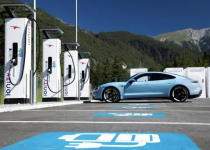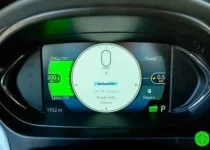What are the benefits of wireless charging for electric vehicles?
Wireless charging, also known as inductive charging, offers a convenient and innovative way to charge electric vehicles (EVs) without the need for physical connectors or cables. This technology uses electromagnetic fields to transfer energy between two coils—one in the charging pad on the ground and the other in the vehicle—allowing the EV’s battery to charge without direct contact. Here are some benefits of wireless charging for electric vehicles:
- Convenience: Wireless charging simplifies the charging process, as drivers do not need to plug and unplug charging cables. This can be especially helpful for those with limited mobility or in situations where handling a charging cable is difficult due to weather conditions or other factors.
- Reduced wear and tear: With no physical connection needed, the wear and tear on charging ports and connectors is reduced, potentially increasing the lifespan of these components and lowering maintenance costs.
- Aesthetics and integration: Wireless charging systems can be seamlessly integrated into parking spaces or even roadways, without the need for visible cables or charging stations. This can lead to a cleaner and more aesthetically pleasing urban environment.
- Automation: Wireless charging can be easily integrated with autonomous and self-parking vehicle systems, allowing for automatic charging without human intervention. This can be particularly advantageous as self-driving cars become more prevalent.
- Opportunity charging: As wireless charging infrastructure expands, it could be integrated into roadways or parking spaces at various locations (e.g., shopping centers, workplaces), enabling EVs to charge during short stops or while parked, potentially reducing range anxiety and increasing the overall usability of electric vehicles.
- Dynamic charging: In the future, wireless charging technology could enable dynamic charging, where EVs can charge while driving on specially equipped roadways. This could significantly extend the driving range of EVs and reduce the need for large battery packs, further promoting the adoption of electric vehicles.
While wireless charging offers several benefits, there are also some challenges to consider, such as the current higher cost of implementation compared to traditional plug-in charging systems, lower charging efficiency, and the need for precise alignment between the charging pad and the vehicle. However, ongoing research and development in wireless charging technology are expected to address these challenges and improve the overall performance and feasibility of the technology, making it an increasingly attractive option for EV charging in the future.



